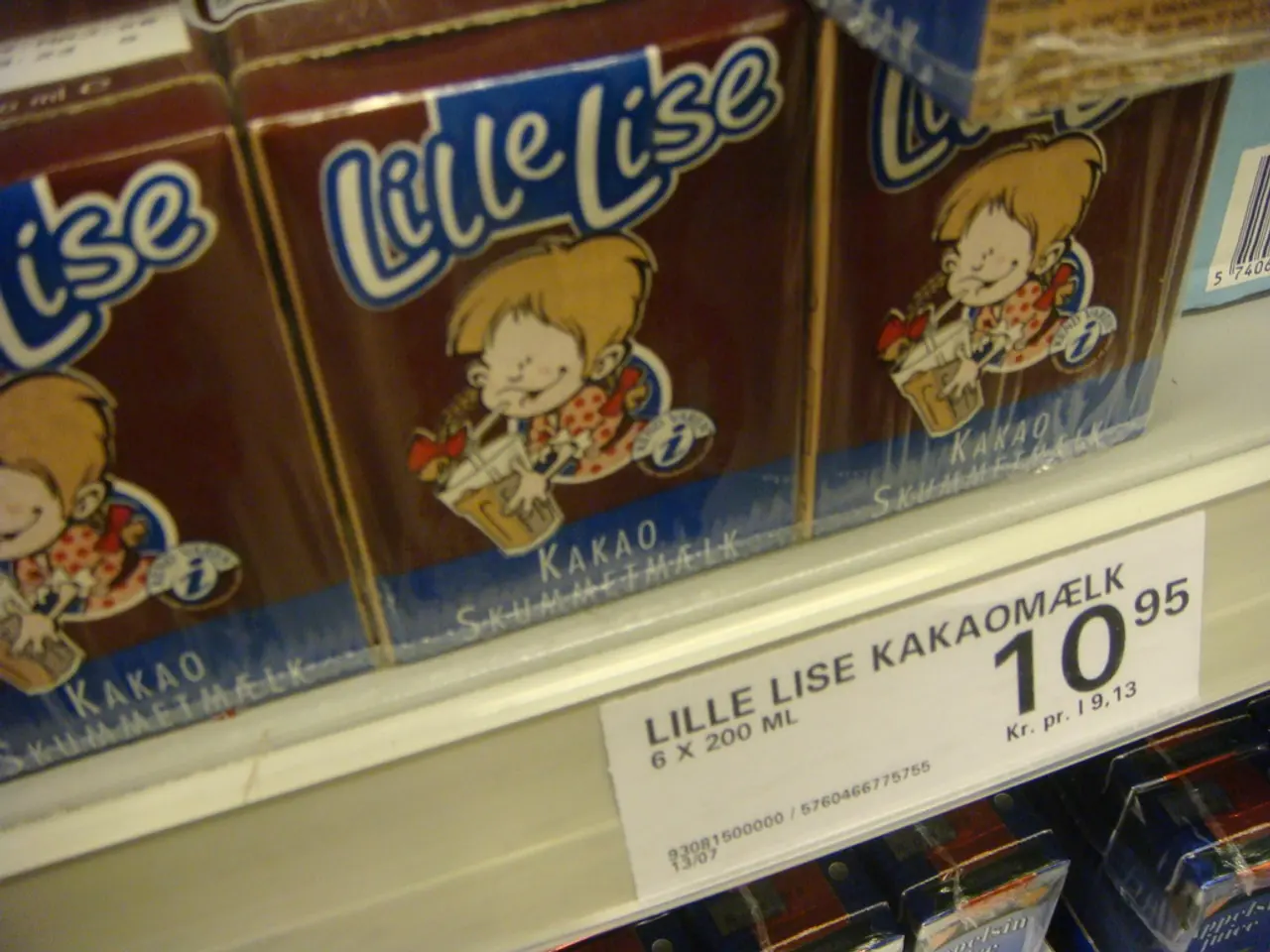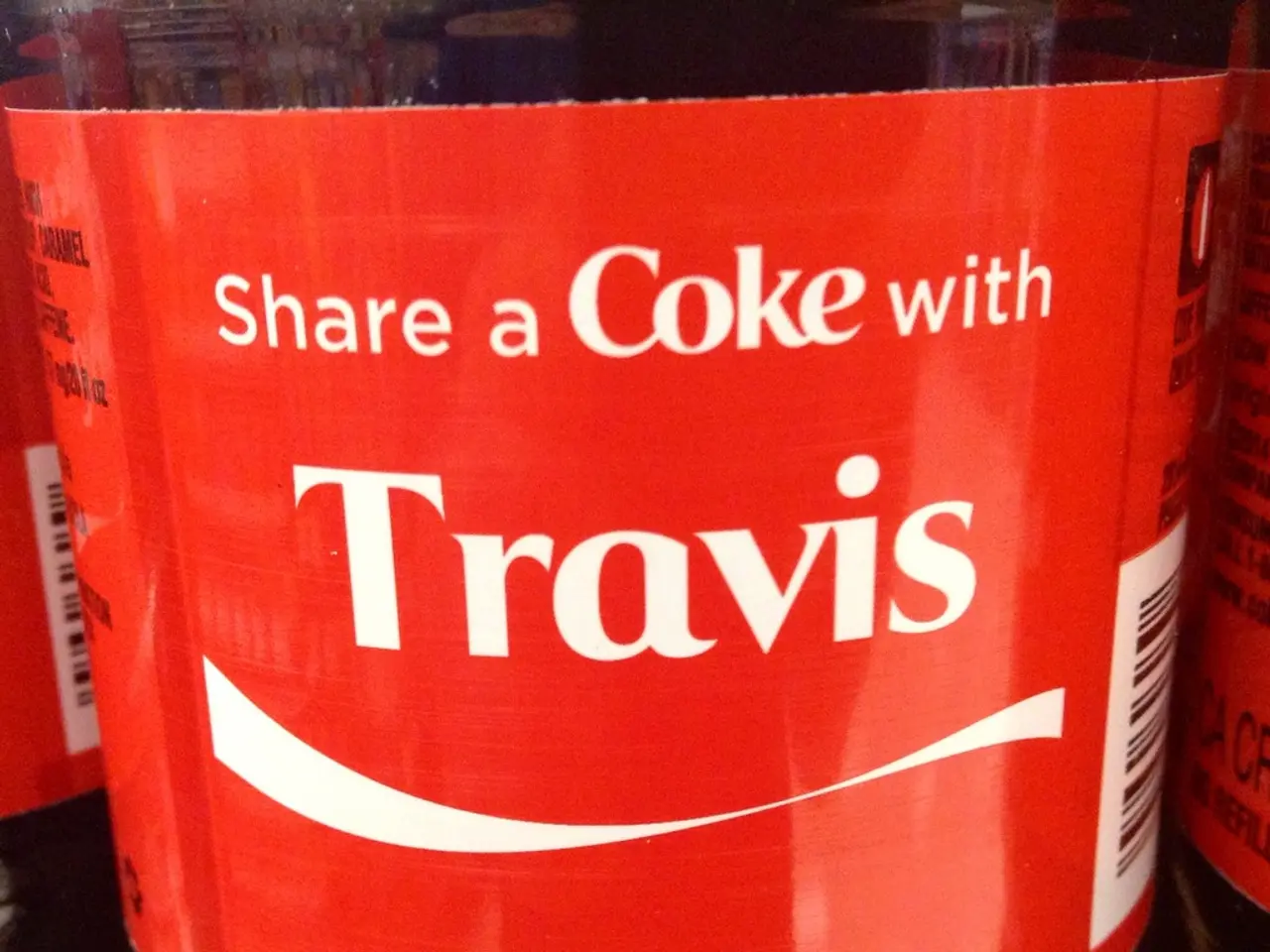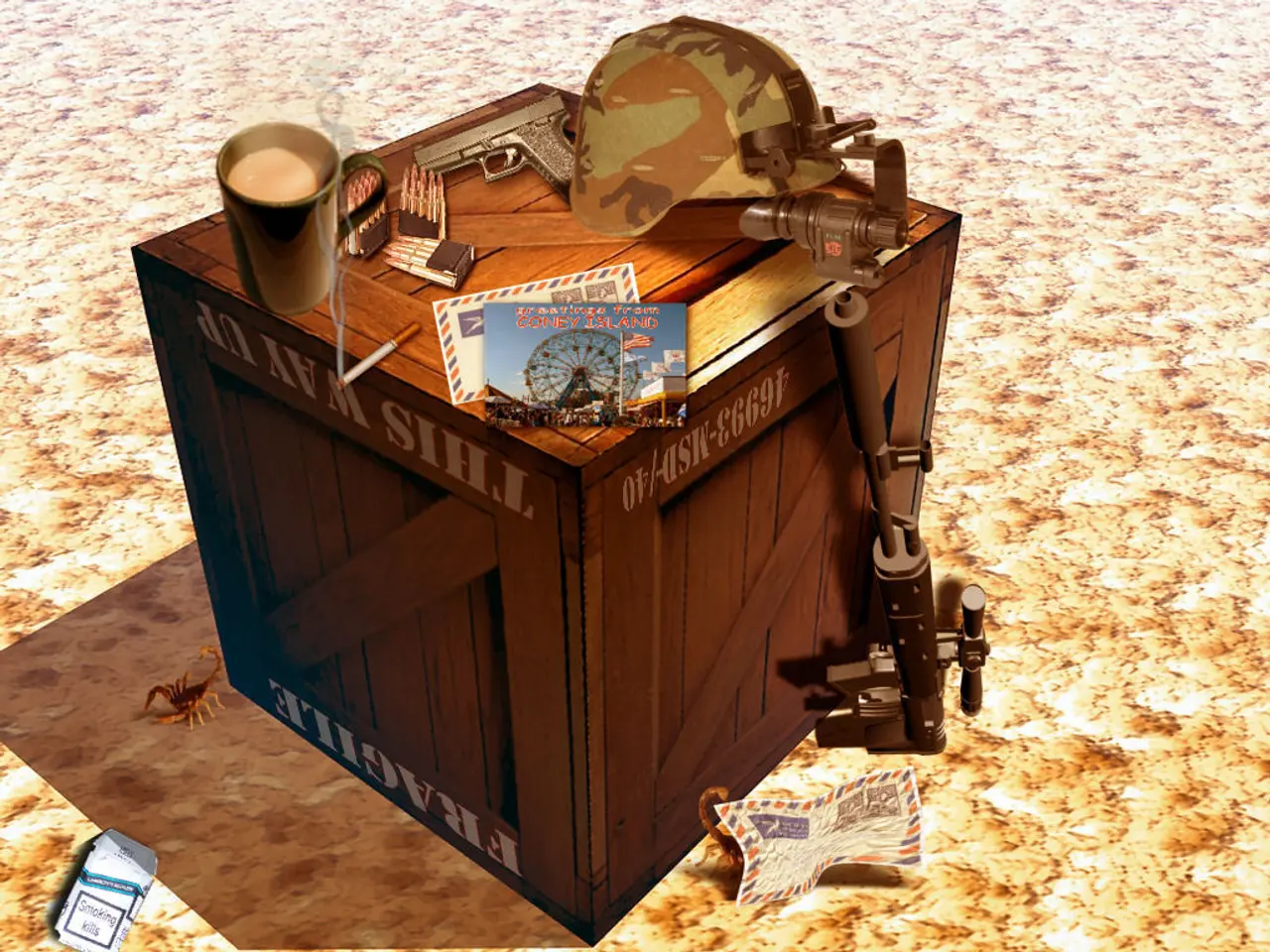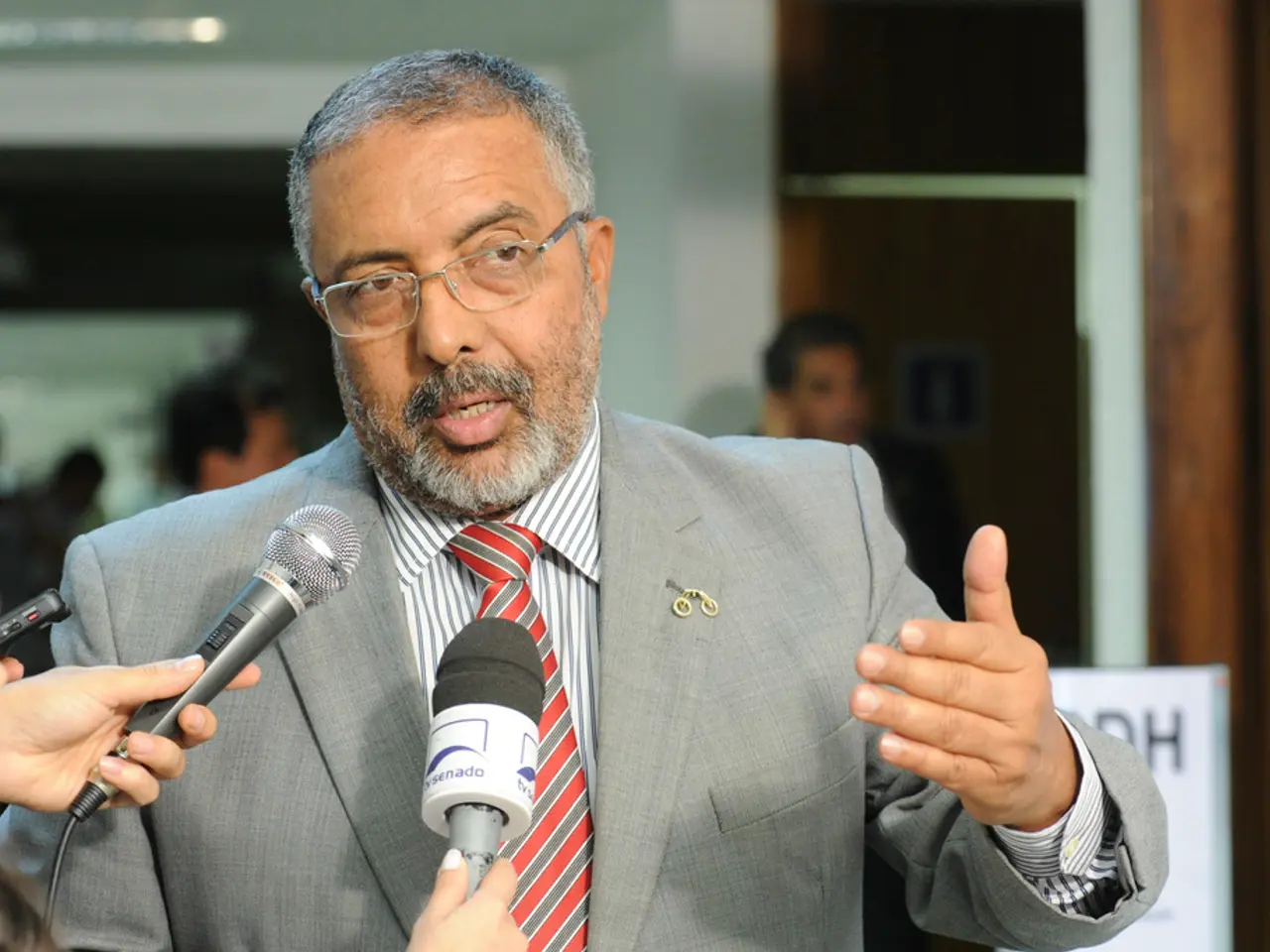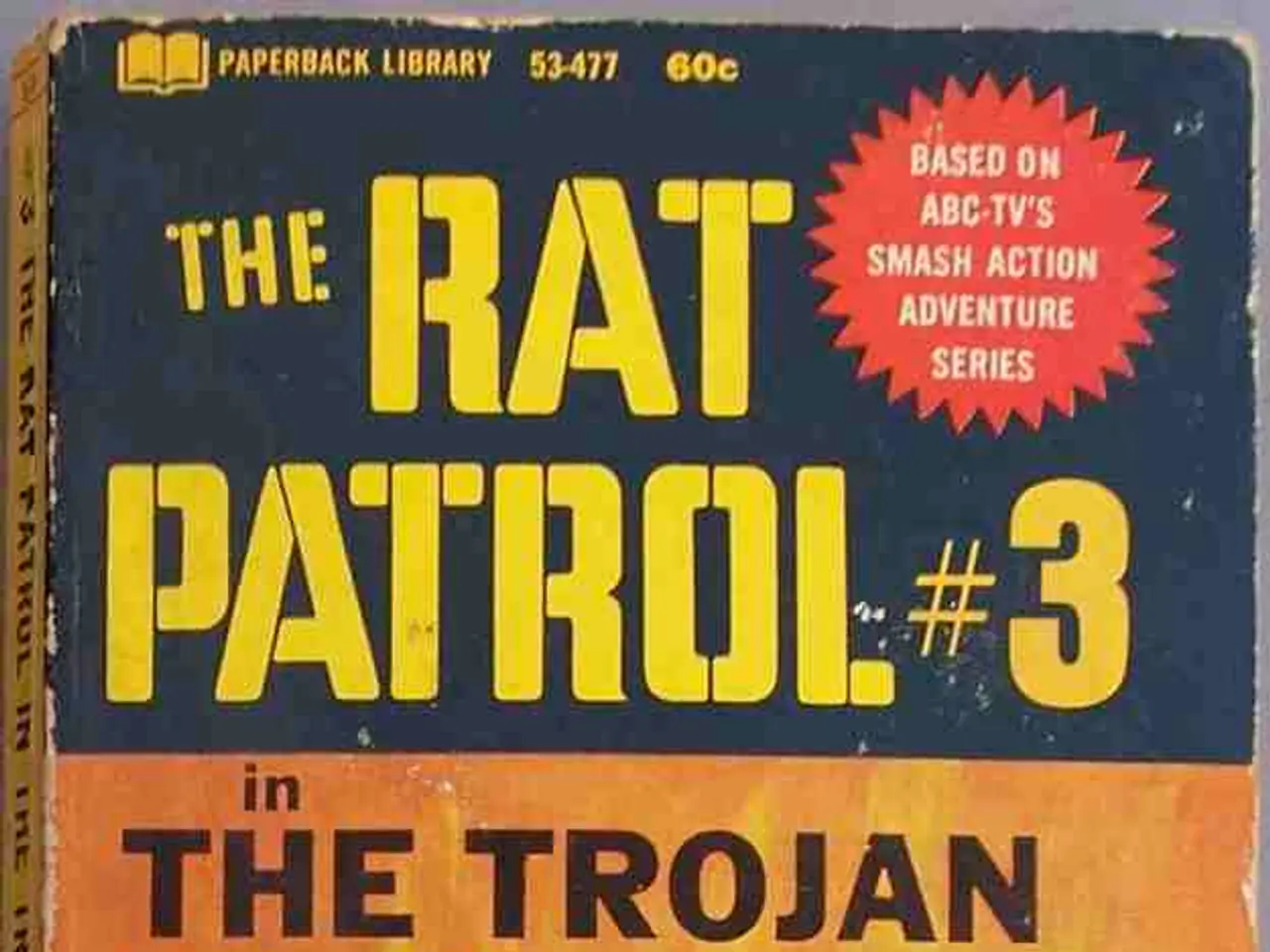Containers of sustenance serve as a potent emblem, emphasizing the complex quandary facing Egypt concerning Gaza's food supply.
Egypt Caught in the Middle of Gaza Crisis
The humanitarian crisis in Gaza has created a complex situation for Egypt, as it navigates its relationship with Israel and the United States while maintaining its role as a champion of the Palestinian cause.
The ongoing Israeli military operations in Gaza have resulted in over 56,000 Palestinian deaths and massive displacement, placing Egypt in a delicate position. The country must balance its security coordination with Israel and its role as a defender of Palestinian rights in the Arab world.
Egypt controls the Rafah crossing, Gaza's main exit to the outside world aside from Israeli-controlled crossings. However, political and security considerations have often led Egypt to restrict passage, frustrating Palestinians and humanitarian actors. This has added social strain as many Egyptians empathize with the Palestinian population but also fear security vulnerabilities.
The Egyptian government has faced intense domestic pressure due to the severity of the Gaza crisis. President Abdel Fattah El Sisi addressed the nation to debunk accusations that Egypt was not doing enough to end the Gaza conflict. Activists have been calling on the government for weeks to open Egypt's border crossing to allow food and other essential items through.
The growing anger among Egyptians over the humanitarian crisis in Gaza has reached a level that has compelled Mr El Sisi to address the nation. The food-in-a-bottle gesture, where individuals in Egypt fill bottles with rice and lentils and cast them into the sea, has resonated in Egypt, where unconditional support for the Palestinian cause and anti-Israeli sentiment are common.
The Egyptian Foreign Ministry has emphasized its tireless efforts to reach a ceasefire, relief operations, and the entry of humanitarian assistance through the Rafah crossing. However, the ministry has also accused "some malicious groups and parties" of a campaign designed to turn attention from what caused the humanitarian crisis in Gaza.
The Egyptian government insists that Israel, whose military occupies the Gaza side of the border, closed the crossing. Al Azhar, a prominent Islamic institution in Egypt, issued a strongly-worded statement accusing Israel of genocide in Gaza. However, the statement was later withdrawn, citing a sense of responsibility before God to spare the Palestinians more bloodshed and not interfere with efforts to reach a ceasefire.
Egypt is in a delicate position due to the Gaza war, as it must balance its national interests with its historical role as the leading champion of the Palestinian cause. The country's 1979 peace treaty with Israel is at stake, as it is widely viewed as a cornerstone of the current regional order and the foundation of nearly 50 years of close ties between Egypt and the US.
The US continues to be a major backer of Israel and has provided funding to Gaza-related aid efforts, but also seeks to manage regional stability. Egypt’s relations with the US are impacted by US policies that largely align with Israel. Egypt must navigate aligning with US security interests and aid channels while responding to regional public opinion demanding more robust Palestinian support.
In conclusion, the Gaza humanitarian crisis has heightened tensions for Egypt by creating a profound humanitarian and moral dilemma that complicates its traditional security coordination with Israel and alignment with US policies. Egypt’s balancing act involves managing domestic political sensitivities and international diplomatic relationships amid escalating regional conflict and suffering.
[1] Source: Al Jazeera [2] Source: Middle East Eye [3] Source: Reuters [4] Source: The Washington Post
- Social media platforms in Egypt have been abuzz with videos expressing anger and frustration over the Gaza crisis, demanding immediate action from the government.
- Despite the controversy surrounding Al Azhar's statement, the institution's initial accusation of genocide against Israel did not go unnoticed in Europe, sparking debates on war-and-conflicts and human rights.
- As the world watches the unfolding events in Gaza, many are turning to general-news outlets for updates, with some publications in Europe and the UAE reporting on the situation with increasing frequency.
- Amid the conversation around food-and-drink aid for Gaza, a topic of discussion on social media has been Qatar's role in providing financial assistance to the Palestinian people and its potential impact on the region's dynamics.
- In light of the growing involvement of politics in the Gaza crisis, some Egyptian lifestyle influencers have been using their platforms to raise awareness about migration issues among Palestinians and advocate for their rights.
- Palistinians in Gaza have expressed their disappointment with the role of Egypt during the crisis, citing the lack of solidarity and support compared to prior years and the increasing focus on regional politics.
- Meanwhile, Israel maintains a strong stance, justifying its military operations in Gaza as a response to rocket attacks from militant groups, while raising the specter of entertainment industry boycotts for artists who speak out against its actions.
- The Egyptian government has called for peace talks with Israel, hoping to end the hostilities between Israelis and Palestinians and restore stability in Gaza, which has implications for the entire region and the global community.
- In this delicate political affair, entertainment and the arts have not been immune to the tension, as some artists choose to use their talents to create works that highlight the plight of the Palestinian people, while others express support for Israel's position, leading to questions about freedom of expression and censorship in the region.
